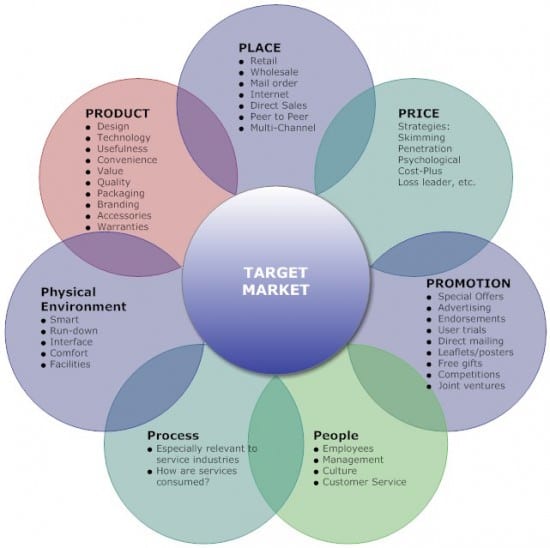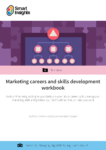Interview: Lee Odden, CEO and founder of TopRank Marketing and Author of "Optimize: How to Attract and Engage More Customers by Integrating SEO, Social Media, and Content Marketing"
One thing I have learned working for start-ups and big brands looking to build their presence through digital channels is the need for you to develop “continuous learning”.
With the shifting technology landscape and the growth in new emerging channels to engage with audiences, the only way to keep on top of how you operate and to remain relevant is to identify good resources to follow
Lee Odden is one of those people who has been a leading voice in the marketing industry – an author and founder of agency, TopRank Marketing you can also follow Lee on Twitter @leeodden
I had the chance to catch up with Lee specifically on this very subject of digital culture and how brands are adapting to a changing technology landscape, the role of a content marketing strategy to support brand relevance as well as the importance for all marketers to have a clear understanding of a classic marketing strategy before jumping into the tactical elements.
Let's start with his interview...
1. Many brands struggle to grasp how “digital” is structured within their organization with many treating their digital activities within a silo -what words of wisdom could you provide brands to adapt a digital-first culture?
Digital first in marketing makes sense when customers are digital first. Brands need to look at their customers to understand the operations and resources needed to serve them.
I think of it this way: Millennials are the first digital-native generation with $1.3 trillion in annual buying power (Boston Consulting Group).
GenZ buyers are even more digital savvy and in the U.S. they are already spending over $143 billion (Barkley) per year. The future is digital first and any brand that wants to survive and thrive in the future will be digital first as well.
2. According to a recent survey by CMI, 91% of respondents use content marketing within their organizations yet the majority of respondents state that the content marketing dept is only a small (1 person) operation – what do you think is holding back the support to a content approach organization-wide?
The simple answer is measurement of success. When metrics prove a thing has ROI, there are few executives who won’t want to invest more.
But beyond that, I think there is a relationship between how sophisticated a company is at content marketing and the amount of resources they allocate to it. CMI has created different maturity levels to express that and so have we.
For example, Stasis is where companies make content only when they have to. Production is a tactical approach where more content is perceived as better. Utility takes are empathetic approach to make content that is useful to buyers. Storytelling elevates useful information to experiences that go beyond informing buyers to helping them feel. Content Culture is just that, a level of maturity where content creation has become part of the overall company culture - everyone is a creator!
As companies become more mature (with evidence of success inspiring investment) they’ll, in turn, invest even more support to content marketing.
3) What are some of the pitfalls brands fall into when they decide on a content marketing strategy in terms of organization buy-in?
Implementing a content marketing strategy can create impact for all parts of an organization from Sales to Recruiting to Public Relations. If marketing develops and executes a content marketing strategy without considering how it will impact messages and communications with the public it can result in a few problems:
- Confuse customers. Different or conflicting messages from the same company is not great for customer experience.
- Alienate stakeholders. The very resources internally that could benefit from the demand created by content marketing could be put off by not being involved or consulted about the program’s development
- The strategy could fail. Without consulting those closest to customers and brand leadership, insights that could lead a content marketing strategy to success could be lost.
4. For brands operating in competitive markets, what can they consider with a content approach to help them differentiate their product or service?
One of the most successful things we’ve done to differentiate in competitive markets is to be more creative, credible and convincing. On the creative side, we’ve incorporated aesthetics and content types that are uncommon for the industry to stand out.
An example is the interactive quiz we created for Prophix, a financial software platform sold in the FP&A industry. The interactive quiz used a Candy Crush theme to visually stand out. It also used industry influencers within the quiz and related content to add credibility. Our understanding of what motivates the buyer empowered us to use messages that were compelling for readers to act on, resulting in record-setting conversion rates.
5. How important are the traditional building blocks of a marketing strategy when executing the tactical elements of digital marketing?
The 4Ps, (Product, price, place, and promotion) are still elements of marketing but more than anything, customer centricity is key for digital marketing success. Customer expectations are higher than ever and as the lines blur between entertainment, advertising and media, brands need to focus on how to best leverage insights about customer content preferences so they can deliver an experience that stands out.

In today’s world of social media, small brands with hustle and customer insight can be just as competitive at attracting, engaging and converting customers as a major brand. Understanding customer preferences for information discovery, consumption and engagement will reveal whatever marketing mix is necessary for a digital strategy. In that way the customer, or rather their data, is definitely king.
6. The future marketer – what words of advice would you give to marketers looking to ensure they remain relevant to their respective organization or agency – should they focus on a speciality or adapt their skills?
To become and stay relevant to a marketing organization is to be relevant to customers and the skills needed to serve them. There is much value in specialty for the kind of organization that needs depth of experience for the marketing solutions it delivers. At the same time, the world is changing and changing quickly. I don’t know any position that wouldn’t be well served with some level of skills adaptation. That doesn’t mean copywriters need to become coders, but it wouldn’t hurt for them to become more aware of the myriad ways and contexts in which technology will deliver their messages.
Download our FREE Resource – Marketing careers and skills development workbook
Tools and techniques to give you clarity on your future path, skills development and position yourself to attract the employers you want to work for.
Access the Marketing careers and skills development workbook template







